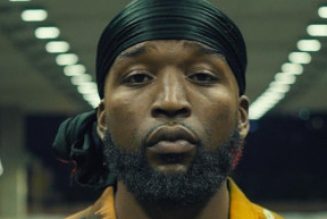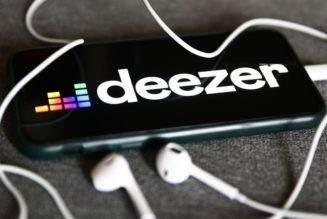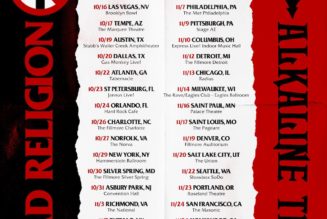
BET president Scott Mills wants viewers of this year’s BET Awards to understand one thing up front: don’t call it a virtual awards show.
It’s a “complete mischaracterization of what the show is,” says Mills of the BET Awards which, like many other special events, has had to shift gears as the COVID-19 pandemic continues to rage. Celebrating its 20th anniversary, the ceremony will air Sunday evening (June 28) and also make its national broadcast debut on CBS.
Noting that other media have tagged the show as virtual, Mills continues, “We actually never have described it as virtual. We said that we’re proceeding with the awards show and not doing it in front of a live audience.”
Mills further emphasizes that the show won’t feature artists simply performing from their homes. Instead, performances will take place in various locations.
“We were absolutely committed,” he adds, “to not doing a couch performance show.”
Ahead of the BET Awards telecast on Sunday, Mills hints at what else fans can look forward to, Amanda Seales’ “critical” role as this year’s host, his favorite awards show moments and the future of the BET brand as the cable network concurrently celebrates its 40th anniversary.
Can you give more of a glimpse into what the BET Awards will look like?
With what’s happening in this country — particularly what’s happening in the context of African Americans and the wrenching focus on racial inequities — artists are really [being] moved to use their voices to bring further focus and attention to these issues. We also know that artists at their core are all creative human beings. We’re celebrating the 20th anniversary of the BET Awards and a lot has already been done onstage. So we said to artists, “We’re not going to do this at the Microsoft Theater [in Los Angeles]. Now you have flexibility. Where would you like to [perform]?” And people have chosen some amazing locales.
The opening of the show is going to be so powerful, speaking to the moment that we find ourselves in as the African-American community. It’s going to be absolutely and profoundly current and moving. It’s also going to be evidence of how the issues that we’re fighting against today are what we’ve been fighting against for so long. It’s a really powerful opening that I think is going to set the tone.
How do host Amanda Seales and the presenters fit within this revamp?
Amanda is a great host for this because part of what you have to be is really flexible and able to respond to very dynamic situations. The host plays a critical role — potentially an even more critical role this year — because it’s incumbent upon the host to bring all of the elements together and help make the experience cohesive. The great news is there are powerful through-lines this year, as you would imagine, given everything that’s happening in the world. [Amanda] is shooting her segments on sound stages and will be the person who will weave together all of the different moments, presentations, tributes, homages and honors throughout the show. We will have other people presenting. But we’re really going to heavily rely on the host given the executions.
What are some of your favorite awards show moments from the last 20 years?
Michael Jackson coming out to honor James Brown in 2003 is a favorite moment. Kanye West doing “Jesus Walks” [in 2004] with Yolanda Adams was another unbelievably powerful moment. When Will Smith and Jada Pinkett Smith hosted in 2005; Beyoncé and Kendrick Lamar’s performance [“Freedom”] in 2016 … I could go on and on. That’s what I love about the show: extraordinary moments that are so specific to our culture.
When we gave Tyler Perry the Icon Award in 2019, [his speech] was so moving. If you were an 18-year-old watching, it was a powerful message for you. If you were a 52-year-old watching, it was a resonant message for you too. I love that ability for our platform to allow important people in our community to speak to our community on such a scale.
How would you describe the lasting impact of the BET Awards?
The awards show is this single opportunity for people who deeply respect the Black community, who deeply respect Black culture, who deeply care about Black people to come together, first and foremost, to acknowledge and celebrate all that is amazing about our community. And to also use it as a platform to express our anger, our fear, our outrage, our concerns yet equally express our triumphs, our joys [and] to celebrate the most extraordinary people in our community. It’s fascinating because given what’s happened between the two plagues — COVID-19 and lethal racism — BET Awards 2020 is needed more than it ever was before. That’s really the way that we’ve approached it [the show] every year.
Given the recent merger between Viacom and CBS, is BET planning to bring back its regular news programming?
Absolutely, yes. The key is to do it in a fashion that’s going to resonate with our audience. Now that Viacom and CBS are together, we have an extraordinary partnership with the CBS News team. It’s significantly expanded our access to news-gathering resources, which has been a big advantage for us. Now there’s an absolute place for what we’re calling a weekly news roundup show through which important people from our community can come together, talk about what’s transpired in the prior week and what’s coming up. This is particularly important with the election looming over us. We’ve had prominent journalists come to us and say, “I did a really important piece of work some time ago on race and America, and it’s appalling how little has changed. I want to come back and pick that up in 2020 with a vengeance and really use it as a vehicle to drive change in important areas.”
We’re also working on an African-American news magazine-type program, picking up a very important topic of the week and also profiling extraordinary African-Americans. Everybody knows the successful and extraordinary entertainers and athletes in our community. But there’s also an amazing array of business people, academics and people in social justice who aren’t being profiled.
What does the future hold for the network’s brand moving forward?
That’s one of the reasons why we launched BET+. Our responsibility is to ensure that BET is as relevant and robust 40 years from now as it is today. We have to make critical decisions today to ensure that happens because we’ve seen brands in the African-American community that were hugely relevant and powerful but are virtually irrelevant today. It’s not that anybody set out for that to happen. It’s that there was a series of opportunities missed or a series of critical decisions that weren’t optimally made. If we’re going to be important to people 10 years and more from now, we must have products that service those people. Our job, just like it was with BET Experience and with digital two decades ago, is to constantly monitor and understand our audience.










